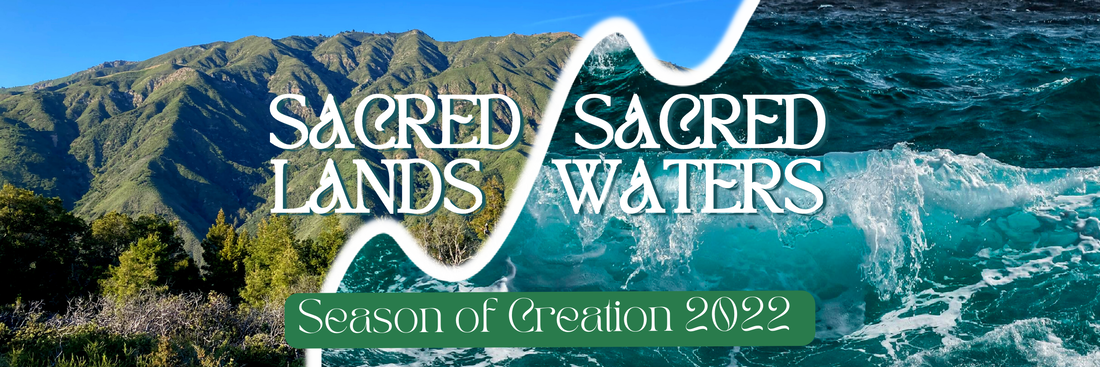|
Wild Church Movement: Restoring Sacred Relationship with Earth
by Rev. Victoria Loorz The old story, as eco-spirituality pioneer Thomas Berry said 30 years ago, is no longer effective. A story of domination and separation expressed through violence of racial and species superiority is unraveling. And a new story is emerging. Everyone affiliated with the Creation Justice movement is involved in that emergence. We are living in a time of liminal in-between. We know that the layers of crises and cruelty we face will not be solved with technological, political, or economic strategies alone. That a deeper transformation of heart is necessary to welcome in a new story. The Wild Church movement is part of that transformation. Moving away from a worldview and a way of life that treats others as a “collection of objects” toward a new way of being human that participates honorably in a vast “communion of subjects” is what Thomas Berry called “the Great Work.”4 The Great Work is spiritual at the core. It is a shift beyond stewardship, which is still rooted in a hierarchy of superiority, as if we humans are the ones who know what is needed to make the necessary shifts of survival. What’s ultimately required is a change of heart, a shift in how we relate to each other and to the whole of the living Earth. It is a shift from mind to heart, from theory to experience, from stewardship to relationship. Restoring sacred, kindred relationship with the land where we live is the core theological practice of wild churches. While there are diverse expressions of a Church of the Wild, creating, restoring, adapting spiritual practices that reconnect us with the rest of the alive world as a beloved community is at the root of the movement. Wild churches include a time of wandering. An embodied movement beyondthe circle of humans to listen for the voices of the others, to hear the voice of the Sacred through the wind’s conversation with leaves, through the crickets call, through the airplane’s trail in the clouds. Like virtually every single spiritual leader in our sacred stories captured in the Bible, a call into wilderness is simply the pattern of calling into leadership. Jesus went into (not just in…eis, the Greek preposition used in every single account of his going to pray is a relational word meaning into) the wilderness, the garden, the lakeside to pray. The children of Israel wandered into the wilderness not just as an act of punishment, but as a tender remembering of who they are in relationship with the whole created world. The word wilderness, midbar, after all, in Hebrew means “the organ which speaks.” Wild churches create spiritual practices that invite relationship. Beyond caring for creation or stewarding Earth’s “resources,” it is entering into an actual relationship with particular places and beings of the living world that can provide an embodied, rooted foundation for transformation. The new story is rooted in a worldview of belonging—a way of being human that acts as if we belong to a community larger than our own family, race, class, and culture, and larger even than our own species. The apocalyptic unveiling happening in our world right now makes it difficult even for those who have been sheltered in privilege to look away from the reality, both tragic and beautiful, that we are all deeply interconnected. Humans, trees, oceans, deer, viruses, bees. God. Re-placing our spirituality back into the actual sacred world, where it has been rooted for most of history, is a way to restore our place in the life-thriving systems of Earth. Wild Spirituality is a practice of remembering what we have forgotten: we are part of Nature, not separate.6Wild church replaces a human “kingdom” paradigm of hierarchy, monarchy, and inequality with the power systems of Earth, which can be described as a “kin-dom” of cooperation and kindred reciprocity. Church of the wild is one way to help us live into a new story of a kin-dom of God that includes the whole system of life and regards all humans and all species as inherently good and valuable. In this kin-dom we love neighbors—all neighbors—as ourselves. We do unto others—all others—as we would have them do unto us. Victoria Loorz, MDiv, is a Wild Church Pastor, an Eco-spiritual Director and founder of the Center for Wild Spirituality, Seminary of the Wild and the ecumenical Wild Church Network. Her book, Church of the Wild: How Nature Invites Us into the Sacred, is an invitation to deepen our commitment to a suffering earth by falling in love with it--and calling it church.
0 Comments
Your comment will be posted after it is approved.
Leave a Reply. |
About this BlogThis blog shares the activities of Creation Justice Ministries. We educate and equip Christians to protect, restore, and rightly share God's creation. Archives
July 2024
Categories
All
|
Photo from johndillon77

 RSS Feed
RSS Feed